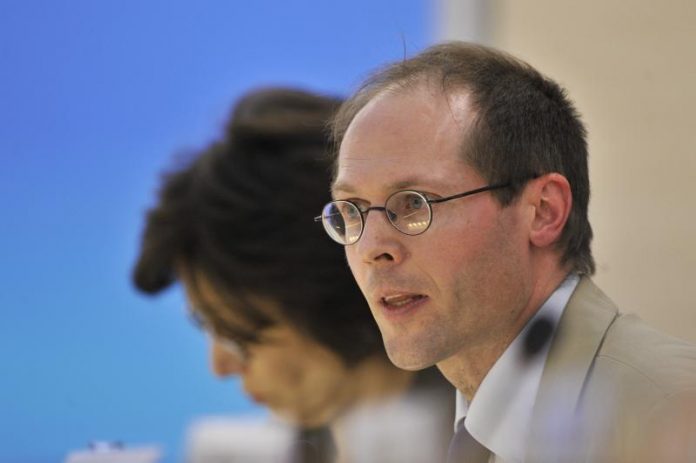The UN’s special envoy on poverty, Olivier De Schutter, participated in the January plenary session of the European Economic and Social Committee (EESC), revealing the conclusions of his mission to the EU institutions. Despite growth and stability, poverty still remains an issue, leaving some 92 million people at risk.
Poverty can be halved by 2030, and this must be one of the main priorities of the European Commission’s upcoming action plan for implementing the European Pillar of Social Rights (EPSR). At the EESC’s plenary debate on 28 January 2021, Olivier De Schutter, the UN’s special rapporteur on extreme poverty and human rights, stressed that one in five people in the EU were at risk of poverty, and that this was increasingly a gender-imbalanced phenomenon, mostly affecting women and single-parent households. Referring to the conclusions from his mission to the EU institutions, he also delivered some criticism of the European Commission’s new growth strategy, the Green Deal, saying that while it included strong social dimensions, it was not a substitute for a poverty strategy: “Reduction of poverty is not an objective per se in the Green Deal”. The president of the EESC, Christa Schweng, said that even before the COVID-19 pandemic, one in five people were at risk of poverty and social exclusion in the EU and that this represented a failure of our developed European societies. “One of the best ways to rescue people out of poverty and prevent it is to build societal and individual resilience”.
Structural constraints in combating poverty
Following discussions with contacts in many EU countries and representatives of the Portuguese presidency, three structural constraints in combating poverty can be identified:
Fiscal dumping across EU countries. During the last 20 years, a gradual shift in the tax burden has been witnessed, from corporations, companies and the wealthiest individuals to workers, consumers and low-income families.Social conditions and costs of labour. There are still countries within the EU that believe that external cost competitiveness can be improved by reducing the wages and social contributions paid by employers.The macro-economic framework that has developed within economic and monetary union, particularly the stability and growth pact (SGP), which should be revised urgently. Social investment in health and education should also be exempted from fiscal disciplines imposed on States.
European Commission’s action plan for implementing the EPSR: three must-have objectives
Mr De Schutter presented three ambitious objectives that should be included in the Commission’s action plan for implementing the European Pillar of Social Rights:
A strategy to reduce poverty by 2030, setting the ambitious goal of a 50% reduction in the number of people at risk of poverty.The child guarantee. Each child in the EU must have five essential guarantees: access to education, early childhood care, nutrition, housing and health care. To achieve the child guarantee, it is essential to support families by providing a decent income, work, and access to benefits.A new legally binding instrument on minimum income schemes, ensuring that minimum income schemes across the EU are adequate and that Member States follow a common methodology.
In the debate, the Committee members raised crucial points with regard to a poverty strategy, and the work and action delivered by civil society organisations, which will be taken on board by Mr De Schutter in his final report to be presented to the UN Council in June 2021. The president of the Diversity Europe Group, Séamus Boland, highlighted the pivotal role played by civil society organisations during the pandemic: “They played a fantastic part in helping the most vulnerable groups in our society, ensuring services that could not be accessed due to isolation caused by the pandemic”. He also raised the issue of digital poverty and digital skills required in work leaving many people behind. Aurel Laurenţiu Plosceanu, representative of the Employers’ Group and president of the EESC’s SOC section, strongly supported the child guarantee objective: “In the EU, 25% of children were at risk of poverty before the pandemic. Children are the least capable of defending themselves. The child guarantee is both urgent and symbolic”. Ferre Wyckmans, on behalf of the Workers’ Group, added: “Extreme poverty is a social cancer and persistent phenomenon, but actions and active measures are possible, like the structural measures we have underscored”. Finally, Ms Schweng pointed out that, besides funding, there was also the need to take a rights-based approach to poverty, which recognised people affected by poverty as not only rights’ holders but also as agents for change. The commitment to leave no one behind entails empowering or re-empowering people to play a positive role in society.
The mandate for the position of UN special rapporteur on poverty was created to give greater prominence to the plight of those living in extreme poverty and highlight the human rights consequences of the systematic neglect to which they are subjected.

